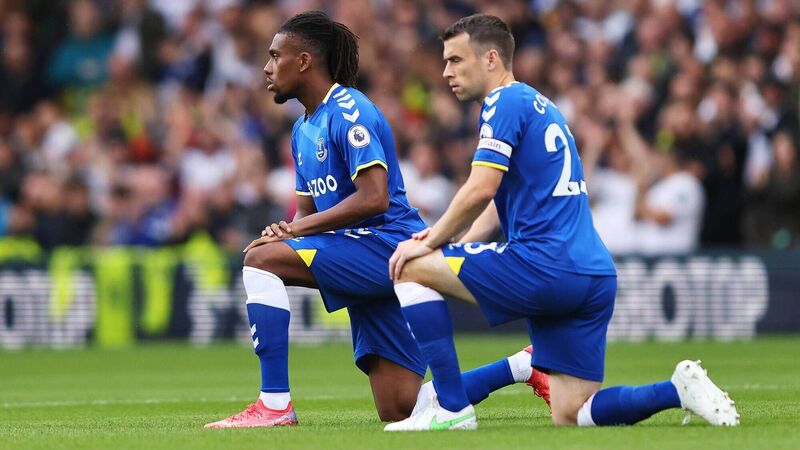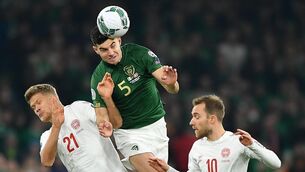Tommy Martin: Time football turned new-found spirit of activism towards support of all women?

Alex Iwobi (L) and Seamus Coleman of Everton take a knee in support of the Black Lives Matter movement. Coleman played a key role in the deal that made the FAI the latest national soccer association to pay its men’s and women’s senior squads equal match fees.









